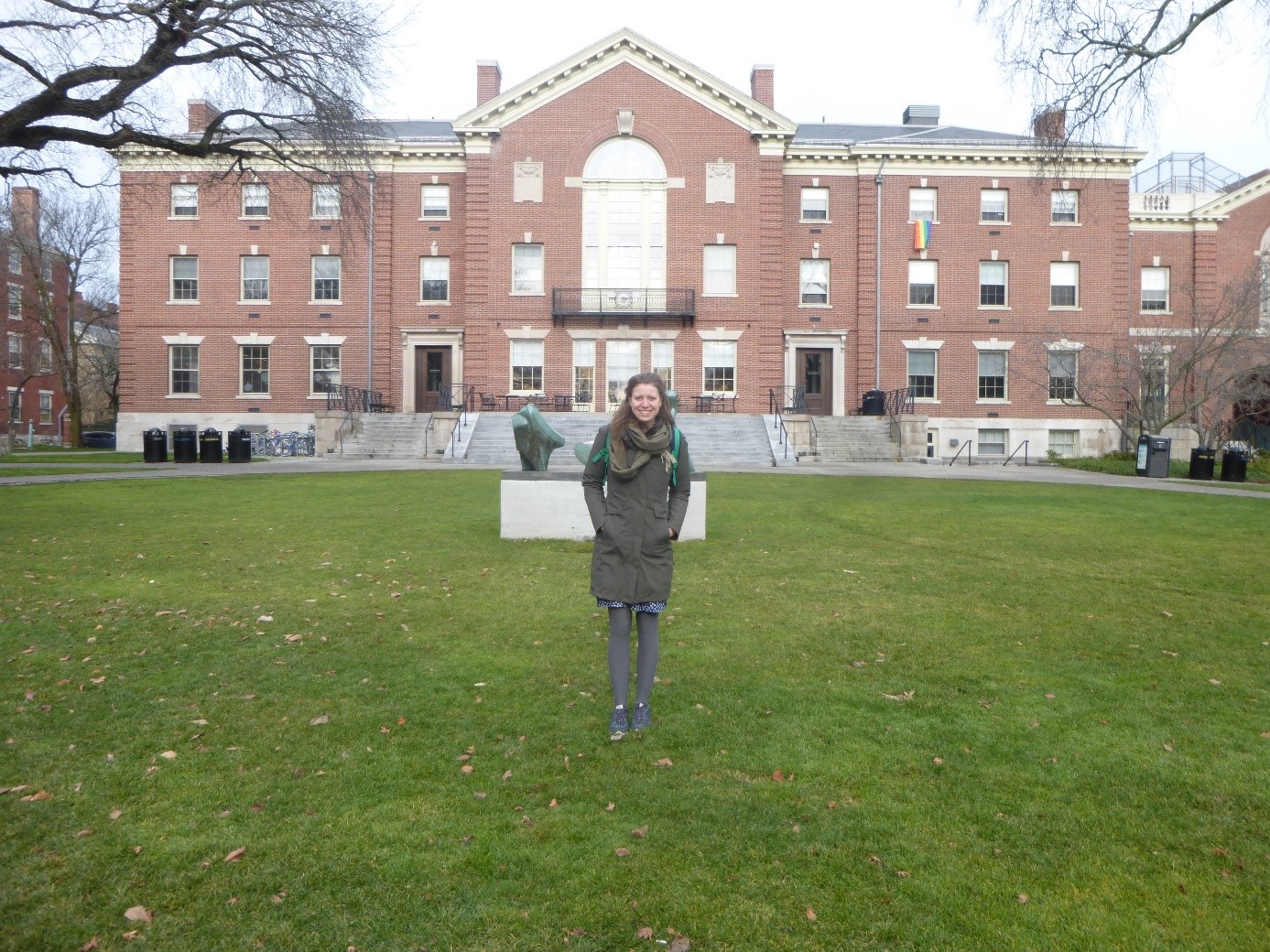Short Story
Today (februari, 2016), I have been living in the United States for exactly 6 months. After leaving the RSC in May last year, I lingered on in Middelburg for a few months, preparing for a move across the ocean in August 2015. I left because I was accepted to the Public Humanities master’s program at Brown University in Providence, Rhode Island. Leaving the Netherlands, I still was not 100 percent sure what it exactly was that I would study there, ‘public humanities’ is a rather vague and broad term, but at the same time, exactly what I wanted. Now, six months later, I am able to reflect on my time in the United States thus far and try to articulate what ‘public humanities’ is.
Brown University, featured in many movies and TV series (Gossip Girl, anyone?), is located in the capital city of the smallest state in the USA: Providence, Rhode Island. Providence is in many aspects the opposite of Middelburg. Middelburg has 17th century buildings that people ‘just live in,’ Providence’s 20th century buildings are protected by the local historical society. Middelburg is built with a lively commercial and residential area at the heart, Providence has a ‘downtown’ where no one lives. Middelburg’s harbor is several hundreds of years old, Providence’s canals have been renewed during the last half of the 20th century. I find a similarity, however, in the relation between the University and the city. Here, students find it difficult to leave ‘college hill,’ at UCR we talked about ‘the bubble’ too.
I am happy that my program is exactly geared toward finding ways to bridge that gap between university and the ‘public.’ We approach ‘public humanities’ work both theoretical and practical. In one course I philosophized about the role of the museum or university in society and in another I work directly with a historic house museum to help with their management sustainability. Generally speaking, my studies prepare me for a diverse range of work in cultural institutions and the non-profit world. Personally, I am interested in how cultural institutions can take the lead in working with issues of social justice and contested histories, while simultaneously connecting to the world of the spectator, visitor, or participant. We are lucky to have academics and practitioners as professors who have worked in the biggest museums in the United States, and use their contacts to our benefit.
Different from the Netherlands, where most students are encouraged to directly pursue their master’s degree after obtaining a bachelor’s, American graduate students often have several years of experience ‘on the job’ before returning to university. My classmates come from all different backgrounds, from working in zoos to large art museums to community arts projects, contributing greatly to my learning too. While Brown University has a relatively large population of international students, in my cohort I am the only non-American. This means I have the opportunity to really dive into American culture and I am able to bring some ‘outsider’ perspectives on issues related to cultural work.
A great aspect of my experience in the United States is my fellowship with the Fulbright program. This particular program is a partnership between the Department of State and a vast amount of foreign governments, offering financial support and guidance to international students pursuing a second degree in the United States. I had the opportunity to visit an orientation program in August, and a so-called ‘enrichment seminar’ in February, organized by Fulbright and the IIE. During the latter 130 student from 70 different countries came together in Atlanta, resulting in an incredibly inspiring weekend. We dived into the topic of the current presidential elections, providing us with the opportunity to ask all our questions about swing states, the electoral vote and, of course, Donald Trump.
I am looking forward to the different projects, internships and research papers I will work on the months and year to come, anticipating to graduate in May 2017.



